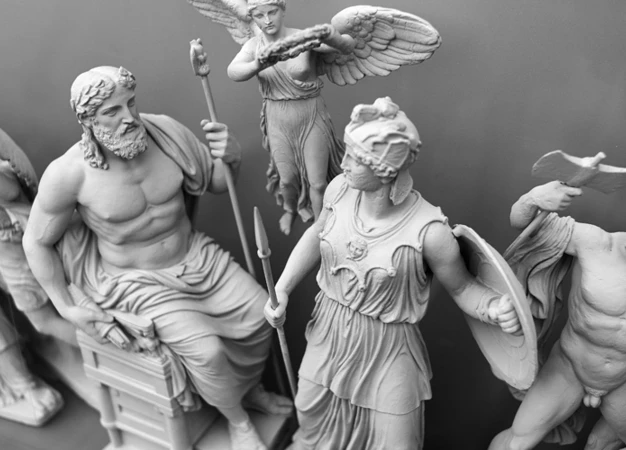Greek mythology has had a profound influence on various aspects of modern culture, leaving an indelible mark on literature, film, art, and more. These captivating tales of gods and goddesses, heroes and villains, have captured the imaginations of people for centuries. From the heroic figures embarking on epic quests, to the tragic heroes plagued by their own flaws, the archetypal characters and themes of Greek mythology continue to resonate with audiences today. Additionally, the language and expressions derived from Greek mythology have become deeply ingrained in everyday speech, while modern interpretations and adaptations have given these ancient stories new life in fantasy games, comic books, music, and theater. The impact of Greek mythology stretches far beyond the realms of entertainment, with its influence even reaching into the fields of science, medicine, and astronomy. In this article, we will explore the enduring influence of Greek mythology on modern culture and the myriad ways in which these ancient tales continue to shape our world today.
Contents
- The Gods and Goddesses in Popular Culture
- Archetypal Characters and Themes
- Language and Expressions
- Modern Interpretations and Adaptations
- The Influence of Greek Mythology on Science and Medicine
- The Impact of Greek Mythology on Astronomy and Astrology
- Conclusion
-
Frequently Asked Questions
- 1. How did Greek mythology influence the development of literature?
- 2. How have Greek gods and goddesses been portrayed in film and television?
- 3. How has Greek mythology influenced the world of art and sculpture?
- 4. What is the significance of heroic figures and the hero’s journey in Greek mythology?
- 5. What is the concept of hubris and its connection to tragic heroes?
- 6. How does Greek mythology use symbolism to convey messages?
- 7. How is Greek mythology present in everyday language and expressions?
- 8. How does advertising and marketing utilize mythological allusions?
- 9. How has Greek mythology influenced the world of fantasy and role-playing games?
- 10. How does Greek mythology inspire music and theater?
- References
-
Frequently Asked Questions
- Why is Greek mythology still relevant today?
- What are some examples of Greek mythology in literature?
- How has Greek mythology influenced film and television?
- What role does Greek mythology play in art and sculpture?
- Why are archetypal characters and themes important in Greek mythology?
- What are some examples of heroic figures and the Hero’s Journey in Greek mythology?
- What is the concept of hubris in Greek mythology?
- How does Greek mythology use symbolism?
- What are some mythological references in everyday language?
- How has Greek mythology influenced science and medicine?
- References
- Read More
The Gods and Goddesses in Popular Culture
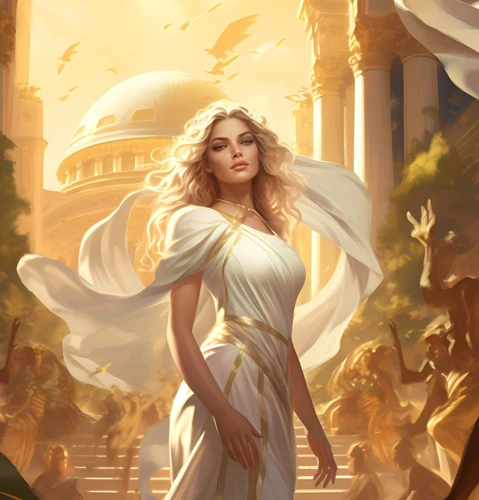
Greek mythology has had an immense impact on popular culture, with the gods and goddesses of ancient Greece making appearances in various forms of media. These mythological figures have become iconic symbols in literature, film, television, art, and sculpture, captivating audiences with their larger-than-life personas and compelling stories.
Greek mythology has provided a rich source of inspiration for numerous literary works throughout the centuries. Authors like Homer, who penned the epic poems “The Iliad” and “The Odyssey,” extensively drew from Greek mythology in their narratives. The adventures of heroes like Achilles and Odysseus continue to be celebrated for their timeless themes of heroism, perseverance, and the pursuit of glory.
Greek mythology has also made its mark on the silver screen and television. Films like “Clash of the Titans” and its modern remake, as well as the Disney animated film “Hercules,” have brought the gods and goddesses of Greek mythology to life, captivating audiences with their mythical battles and timeless tales. Additionally, TV series like “Xena: Warrior Princess” and “Hercules: The Legendary Journeys” have embraced the rich mythological tapestry, weaving epic adventures and larger-than-life characters into captivating storylines.
Greek mythology has been a major source of inspiration for artists and sculptors throughout history. From ancient Greek pottery depicting scenes from mythological stories to Renaissance paintings featuring gods and goddesses, the impact of Greek mythology on the art world is undeniable. The exquisite sculptures of gods like Zeus, Athena, Apollo, and Aphrodite have adorned museums and cultural centers worldwide, showcasing the timeless beauty and power attributed to these mythological figures.
The influence of Greek mythology on popular culture is vast and varied, permeating different forms of artistic expression. The stories of the gods and goddesses continue to captivate audiences, reinforcing the enduring power of these ancient tales in modern society.
1. Greek Mythology in Literature
Greek mythology has had a significant presence in literature throughout history. From ancient Greek epics to modern novels, the influence of Greek mythology can be seen in a myriad of literary works.
One of the most notable examples is the epic poems “The Iliad” and “The Odyssey” by Homer. These ancient Greek works are filled with gods, goddesses, heroes, and mythical creatures. The adventures of heroes like Achilles, the Trojan War, and the cunning wit of Odysseus have become legendary tales that continue to inspire authors to this day.
Another famous literary work heavily influenced by Greek mythology is William Shakespeare’s play “A Midsummer Night’s Dream.” This comedic masterpiece is set in an enchanted forest where meddling fairies, inspired by the Greek god Hermes, wreak havoc on the lives of mortals, resulting in a tangled web of love, mistaken identities, and magical transformations.
Modern authors, too, have been greatly influenced by Greek mythology in their works. Rick Riordan’s popular “Percy Jackson & the Olympians” series revolves around a young demigod, Percy Jackson, as he navigates a world filled with Greek gods, monsters, and quests. This modern take on Greek mythology has introduced a new generation of readers to ancient stories and characters.
Additionally, many literary works incorporate allusions to Greek mythology to enrich their stories and add depth to their characters. From James Joyce’s famous novel “Ulysses” to Margaret Atwood’s “The Penelopiad,” authors draw upon the themes, symbols, and archetypes of Greek mythology to explore timeless human experiences and shed light on the complexities of the human condition.
Greek mythology continues to be a rich source of inspiration for authors, providing a treasure trove of captivating stories, archetypal characters, and powerful themes. These literary works serve as a testament to the enduring influence of Greek mythology on the world of literature.
2. Greek Mythology in Film and Television
Greek mythology has had a significant presence in the world of film and television, with numerous adaptations and reinterpretations bringing these ancient tales to the screen. The allure of Greek mythology lies in its fantastical stories, epic battles, and larger-than-life characters that continue to captivate audiences.
In the realm of film, Greek mythology has been the inspiration for several blockbuster hits. The 1981 film “Clash of the Titans” brought the tale of Perseus and his quest to slay the monstrous Medusa to life, showcasing the thrilling adventure and mythical creatures of Greek mythology. The success of the film led to a 2010 remake of the same name, further cementing the enduring popularity of Greek myths.
Beyond direct adaptations, Greek mythology has also influenced fantasy and adventure films. The “Percy Jackson” series, based on the novels by Rick Riordan, follows a modern-day demigod as he navigates the challenges of being a half-human, half-god. These films introduce viewers to a world where the gods of Mount Olympus coexist with the mortal realm, creating a modern interpretation of Greek mythology.
In the realm of television, Greek mythology has found its place in episodic storytelling. The series “Xena: Warrior Princess” features a strong female protagonist who battles mythological creatures and encounters gods and goddesses from Greek mythology. The show combines ancient lore with action-packed adventures, captivating audiences with its blend of fantasy and mythology.
Greek mythology has also been a recurring theme in animated television series. The Disney animated film “Hercules” and its subsequent television spin-off featured familiar mythological characters and stories, albeit with a lighthearted and comedic twist. The adventures of Hercules and his interactions with gods like Zeus and Hades provided entertainment for both children and adults, introducing a new generation to Greek mythology.
In recent years, Greek mythology has even made its way into popular television shows like “American Gods” and “Olympus.” These series use Greek mythological elements as a backdrop for their own unique narratives, exploring themes of power, morality, and the clash between gods and humans.
Greek mythology has been a treasure trove of inspiration for filmmakers and television creators, allowing them to tap into a rich tapestry of stories and characters. The enduring popularity of Greek mythology in film and television is a testament to the timeless appeal of these ancient tales and their ability to resonate with audiences for centuries.
3. Greek Mythology in Art and Sculpture
Greek mythology has had a profound influence on the world of art and sculpture, inspiring countless masterpieces throughout history. Artists from ancient Greece to the Renaissance and beyond have been captivated by the rich tapestry of mythological stories and characters, using them as subjects for their creative endeavors.
One notable example of Greek mythology’s influence on art is seen in ancient Greek pottery. These intricate vessels were often decorated with elaborate scenes depicting the exploits of gods, goddesses, and heroes. These depictions not only added visual interest to the pottery but also served as a way to honor and commemorate the mythological figures.
Statues and sculptures also played a significant role in showcasing Greek mythology in art. One of the most famous examples is the statue of Zeus at Olympia, which was considered one of the Seven Wonders of the Ancient World. This colossal figure, created by the renowned sculptor Phidias, depicted Zeus sitting on his throne and exuded an aura of power and majesty. The statue stood as a testament to the divine qualities attributed to Zeus in Greek mythology.
The goddess Athena, known for her wisdom and courage, has also been a popular subject in Greek mythology-inspired art. The renowned sculpture known as the Parthenon Marbles, which once adorned the Parthenon temple in Athens, featured scenes from Athena’s life and the mythical battles of the gods. These sculptures showcased the exquisite craftsmanship of ancient Greek artists and served as a celebration of Athena’s important role in Greek mythology.
Beyond the ancient world, Greek mythology continued to influence artists during the Renaissance and beyond. Artists like Botticelli and Michelangelo drew inspiration from the stories and characters of Greek mythology, incorporating them into their paintings and sculptures. Botticelli’s famous painting “The Birth of Venus,” depicting the goddess emerging from a seashell, is a prime example of Greek mythological influence in Renaissance art.
Greek mythology’s presence in art and sculpture has stood the test of time, captivating audiences with its compelling narratives, captivating characters, and timeless themes. These artistic representations continue to be celebrated and admired, showcasing the enduring influence of Greek mythology on visual arts throughout history.
Archetypal Characters and Themes
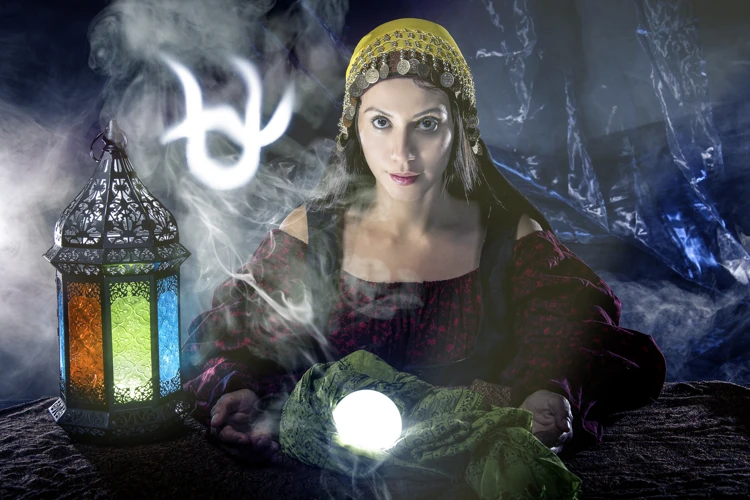
Archetypal characters and themes derived from Greek mythology have pervaded various aspects of modern culture, resonating with audiences across different mediums. One prominent archetype is the heroic figure and the concept of the hero’s journey. This archetype is seen in countless novels, films, and even video games, where a protagonist embarks on a quest, facing trials and tribulations before ultimately achieving a transformative victory. The hero’s journey, as depicted in Greek mythology through figures like Hercules and Perseus, continues to inspire and captivate audiences with its themes of bravery, perseverance, and self-discovery.
Another notable archetype is that of the tragic hero, characterized by their fatal flaw or hubris, which leads to their downfall. This archetype can be seen in characters like Oedipus and Medea, who, despite their noble intentions, are ultimately consumed by their own flaws. The concept of hubris, or excessive pride, is a recurring theme in Greek mythology and continues to serve as a cautionary tale in modern storytelling. From Shakespearean tragedies to contemporary literature, the tragic hero archetype and the consequences of unchecked hubris continue to resonate with audiences, reminding us of the fragile nature of human character.
Greek mythology is rich with symbolism that has permeated modern culture. Symbols like the thunderbolt of Zeus, the olive branch of Athena, and the trident of Poseidon have become instantly recognizable emblems in art, literature, and popular culture. These symbols offer deeper meaning and evoke a sense of power and identity associated with the gods and goddesses they represent. Mythical creatures such as the phoenix, centaur, and sphinx continue to inspire awe and fascination, their symbolism often used to represent various aspects of the human condition.
The enduring influence of Greek mythology on archetypal characters and themes is a testament to the timeless relevance and universal appeal of these ancient stories. These archetypes allow us to explore fundamental aspects of the human experience and uncover profound truths about ourselves and the world we inhabit. Whether it’s the hero’s journey, the tragic hero, or the symbolic motifs, Greek mythology continues to provide a rich tapestry of inspiration for storytellers and artists, reminding us of the enduring power of these age-old tales.
1. Heroic Figures and the Hero’s Journey
Heroic figures and the concept of the hero’s journey have become deeply rooted in modern storytelling, drawing inspiration from Greek mythology. The archetype of the hero, with their extraordinary abilities and noble quests, continues to resonate with audiences across various forms of media.
The hero’s journey, a narrative structure commonly found in Greek mythology, has become a prevalent storytelling device in literature, film, and even video games. This narrative pattern consists of a hero embarking on a transformative journey, facing challenges, and ultimately achieving personal growth and triumph.
Many iconic fictional characters embody the traits of Greek mythological heroes. For example, Superman, a superhero first introduced in comic books, possesses superhuman strength and a strong moral compass, much like the Greek hero Hercules. Another example is Frodo Baggins from J.R.R. Tolkien’s “The Lord of the Rings” series, who embarks on a perilous journey to destroy the One Ring, facing numerous obstacles along the way.
The hero’s journey and heroic figures are not limited to traditional storytelling mediums. In the world of video games, the concept of the hero’s journey is often used as a framework for character development and plot progression. Games like “The Legend of Zelda” series and “God of War” draw heavily from Greek mythology, immersing players in epic quests where they must overcome challenges, defeat enemies, and fulfill their heroic destiny.
The influence of Greek mythology can also be seen in the portrayal of heroes in contemporary film and television. Marvel’s cinematic universe, for instance, features heroes such as Thor and Wonder Woman who possess god-like powers and exhibit the characteristics of Greek mythological figures. These heroes face adversity, navigate complex moral dilemmas, and undergo personal growth, echoing the themes seen in ancient Greek tales.
The enduring presence of heroic figures and the hero’s journey in modern storytelling is a testament to the timeless appeal of Greek mythology. The mythological tales continue to inspire and shape narratives, allowing audiences to connect with the heroic ideals and moral struggles portrayed by these legendary characters.
2. Tragic Heroes and the Concept of Hubris
Tragic heroes and the concept of hubris are prominent themes derived from Greek mythology that continue to resonate in modern culture. In Greek tragedies, tragic heroes are typically distinguished individuals who possess noble qualities but are ultimately brought down by a tragic flaw known as hubris, or excessive pride. This concept serves as a cautionary tale, reminding us of the consequences of arrogance and overconfidence.
The influence of tragic heroes can be seen in various forms of literature, film, and theater. Characters like Macbeth from Shakespeare’s play of the same name and Anakin Skywalker, also known as Darth Vader, from the “Star Wars” franchise, exemplify the archetype of the tragic hero. Both characters are depicted as complex individuals who succumb to their own hubris, leading to their downfall.
The concept of hubris has also permeated popular culture through its exploration of flawed protagonists in contemporary storytelling. Walter White from the TV series “Breaking Bad” and Tony Stark, also known as Iron Man, from the Marvel Cinematic Universe are examples of characters who grapple with their own hubris, which drives their narrative arcs and adds depth to their stories.
Importantly, the concept of hubris extends beyond fictional narratives and finds relevance in real-world scenarios as well. History has numerous examples of individuals who, due to their excessive pride, contributed to their own downfall. This cautionary concept serves as a reminder for individuals to remain humble and aware of their limitations, lest they suffer a fate similar to that of the tragic heroes of Greek mythology.
Greek mythology, through its exploration of tragic heroes and the concept of hubris, continues to provide valuable lessons and reflections of human nature in modern culture. By examining the consequences of unchecked pride, these stories serve as reminders of the fragility of human existence and the importance of humility.
3. Greek Mythology and Symbolism
Greek mythology is rich with symbolism that continues to resonate in modern culture. The gods and goddesses of ancient Greece were often associated with specific symbols that represented their attributes and realms of influence. These symbols have found their way into various aspects of contemporary society, from literature and art to architecture and fashion.
One prominent example of Greek mythological symbolism is the trident, which is closely associated with Poseidon, the god of the sea. The trident, a three-pronged spear, represents his dominion over the oceans and is often depicted in artwork and sculptures featuring the god. This symbol has been adopted in modern popular culture, appearing in logos, tattoos, and even as a weapon wielded by fictional characters inspired by Poseidon.
The olive branch is another powerful symbol derived from Greek mythology. It is often associated with Athena, the goddess of wisdom and warfare. In Greek mythology, Athena gifted the olive tree to the city of Athens, and the tree became a symbol of peace, prosperity, and wisdom. Even today, the olive branch is widely recognized as a symbol of peace and is used in various contexts, including as a symbol of the Olympic Games.
The labyrinth is a symbol associated with the Greek myth of Theseus and the Minotaur. In the myth, Theseus had to navigate a complex labyrinth to defeat the fearsome Minotaur and find his way back to safety. The labyrinth has come to symbolize challenges, journeys, and the search for meaning and self-discovery. The use of labyrinth imagery can be seen in contemporary art, architecture, and even in puzzles and games.
The phoenix is a mythical bird that symbolizes rebirth and resurrection. According to Greek mythology, the phoenix is a creature that cyclically regenerates, rising from the ashes of its own destruction. This powerful symbol of renewal and transformation has been widely adopted in literature, art, and popular culture as a representation of overcoming adversity and the capacity for personal growth.
The influence of Greek mythology on symbolism is vast and far-reaching. From the laurel wreath, representing victory and achievement, to the caduceus, associated with the god Hermes and symbolizing commerce and negotiation, these symbols continue to be used as powerful visual elements in various contexts. They serve as reminders of the enduring impact and relevance of Greek mythology in our modern world.
| Greek Mythological Symbol | Meaning and Significance |
|---|---|
| Trident | Representing Poseidon’s dominion over the sea. |
| Olive Branch | A symbol of peace, prosperity, and wisdom associated with Athena. |
| Labyrinth | A symbol of challenges, journeys, and self-discovery. |
| Phoenix | Symbolizing rebirth, transformation, and the capacity for personal growth. |
Language and Expressions
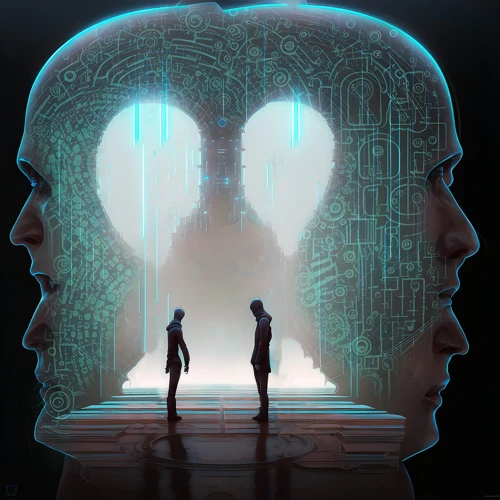
Greek mythology has left an indelible mark on language and expressions, permeating everyday speech and communication. Many words and phrases derived from Greek myths have become deeply ingrained in our vocabulary, adding richness and depth to our language.
One common example of mythological references in everyday language is the expression “Pandora’s box.” This phrase refers to the story of Pandora, who was given a box and instructed not to open it. However, her curiosity got the better of her, and she opened the box, unleashing all the evils into the world. Today, the term “Pandora’s box” is used to describe a situation or action that leads to unforeseen or disastrous consequences.
Another famous expression linked to Greek mythology is “Herculean task.” This phrase references the mighty hero Hercules, who was known for his superhuman strength and endurance. The term “Herculean task” is used to describe a task or challenge that requires immense strength, effort, or determination to complete successfully.
Greek mythology has also influenced the world of advertising and marketing, with many companies incorporating mythological allusions into their campaigns to evoke certain emotions or associations. For example, the luxury brand Hermes takes its name from the Greek god of travel, communication, and commerce. By drawing upon the attributes associated with Hermes, such as speed and elegance, the brand seeks to convey a sense of sophistication and style.
Greek mythology has provided a wealth of symbols and metaphors that are still commonly used in literature, poetry, and art. For instance, the image of the phoenix, a mythical bird that rises from its own ashes, is often used as a symbol of rebirth and resilience. The concept of Achilles’ heel, derived from the story of the heroic warrior Achilles, refers to a person’s vulnerable point or weakness.
Greek mythology has deeply impacted language and expressions, contributing to the richness and beauty of our everyday communication. The references and allusions to gods, heroes, and mythical creatures have become an integral part of our language, adding depth, metaphorical meaning, and cultural resonance to the way we express ourselves.
1. Mythological References in Everyday Language
Mythological references from Greek mythology have become ingrained in everyday language, enriching our conversations and expressions. Phrases like “Pandora’s box,” which refers to a source of endless troubles, and “Herculean task,” symbolizing an extremely difficult challenge, showcase how these mythological stories have become deeply embedded in our vernacular. When someone mentions a “Trojan horse,” they are referencing the deceptive strategy used in the legendary story of the Trojan War. These references serve as a testament to the lasting impact of Greek mythology on modern language and our collective cultural understanding.
The influence can also be seen in the names of celestial objects, such as planets and asteroids. For example, the planet Mercury is named after the Roman counterpart of the Greek god Hermes, who is associated with speed and communication. Similarly, the asteroid Apollo is named after the Greek god of music, poetry, and prophecy. These references not only pay homage to the rich mythological traditions but also highlight the enduring fascination with the stories and characters that have shaped our understanding of the cosmos.
Greek mythology has inspired the naming of various constellations in the night sky. The constellation Orion, named after a legendary hunter in Greek mythology, is one of the most recognizable and prominent constellations. The story of Orion’s death and transformation into a constellation has been passed down through generations, connecting us to the mythical narratives that continue to captivate our imagination.
Greek mythology’s influence on everyday language is a testament to the enduring impact of these ancient stories. From idiomatic expressions to celestial nomenclature, the mythological references serve as a reminder of the rich cultural heritage and timeless themes embedded in Greek mythology. They continue to contribute to the depth and complexity of our language, keeping the spirit of these ancient tales alive in our modern world.
2. Mythological Allusions in Advertising and Marketing
Mythological allusions are a prevalent feature in the world of advertising and marketing, as companies leverage the power of Greek mythology to create compelling and memorable campaigns. The use of mythological references allows brands to tap into the rich symbolism and associations associated with these ancient stories, effectively capturing the attention and imagination of their target audience.
One common mythological allusion in advertising is the use of gods and goddesses to represent certain qualities or attributes associated with a product or brand. For example, a luxury perfume line might feature a commercial depicting a glamorous and ethereal goddess, symbolizing beauty, grace, and allure. By aligning their brand with the mythological figure, the company seeks to evoke a sense of elegance and sophistication in their customers.
Another way that advertisers incorporate Greek mythology into their campaigns is through the retelling of mythological stories or the adaptation of iconic characters. These stories are often reimagined or modernized to resonate with contemporary audiences. One example is the use of the character Medusa, known for her ability to turn people to stone with her gaze. Medusa’s image has been used in various advertisements to convey a powerful and mesmerizing effect, such as in the logo of a cosmetics brand or as a symbol of protection in an insurance company’s logo.
Mythological allusions in advertising can extend beyond individual characters to encompass broader themes and concepts. For instance, the concept of the hero’s journey, a recurring motif in Greek mythology, is often utilized to convey narratives of personal growth, transformation, and overcoming challenges. By tapping into this archetype, brands can create emotional connections with consumers, positioning their products or services as catalysts for personal development and empowerment.
Mythological allusions in advertising and marketing offer a powerful tool for brands to convey specific qualities, create emotional connections, and stand out in a crowded marketplace. By drawing from the enduring stories and archetypes of Greek mythology, advertisers tap into a wellspring of symbolism and cultural resonance, making their campaigns more memorable and impactful.
Modern Interpretations and Adaptations
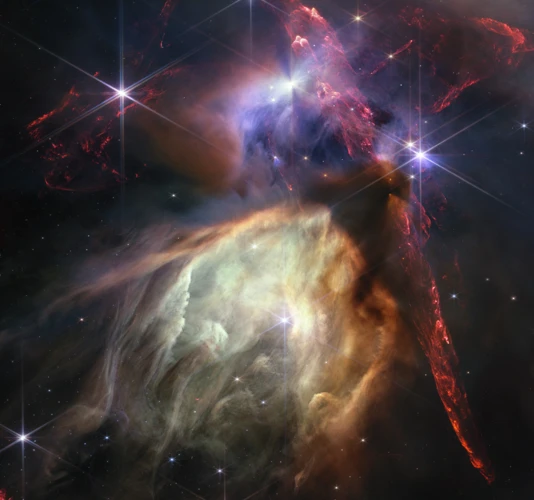
Modern interpretations and adaptations of Greek mythology have breathed new life into these ancient stories, allowing them to resonate with contemporary audiences. One popular avenue for reimagining Greek mythology is through the world of fantasy and role-playing games. Games like “God of War” and “Assassin’s Creed Odyssey” transport players into immersive worlds where they can interact with gods, engage in epic battles, and embark on mythological quests. These adaptations not only entertain but also educate players about the rich tapestry of Greek mythology.
Comics and graphic novels have also embraced the allure of Greek mythology, presenting fresh and dynamic interpretations of these classical tales. The graphic novel series “Olympians” by George O’Connor brings Greek gods and heroes to life in a visually stunning format, making the stories accessible to new generations while staying true to the essence of the original myths. These adaptations serve as gateways for readers to delve deeper into the intricacies of Greek mythology.
Greek mythology has found its place in the realm of music and theater as well. Numerous musical compositions and theatrical productions draw inspiration from the mythological tales, creating breathtaking performances that blend contemporary techniques with the mystique of the ancient world. Operas like Richard Strauss’ “Elektra” and George Frideric Handel’s “Semele” breathe life into the tragic stories of mythical figures, while modern stage adaptations of classics such as “Medea” and “The Bacchae” continue to captivate audiences with their timeless themes and compelling characters.
The influence of Greek mythology extends far beyond traditional entertainment mediums. It has also made its way into advertising and marketing, with brands utilizing mythological allusions to evoke emotions and capture attention. By associating their products or services with the qualities and characteristics attributed to gods and goddesses, companies seek to create a powerful brand image and resonate with consumers on a deeper level.
Through these modern interpretations and adaptations, Greek mythology continues to thrive and evolve in the contemporary world. By bridging the gap between the ancient and the present, these adaptations ensure that the enchanting stories of the gods and goddesses remain relevant and captivating for generations to come.
[Modern Interpretations and Adaptations]
1. Greek Mythology in Fantasy and Role-playing Games
Greek mythology has served as a wellspring of inspiration for the world of fantasy and role-playing games. These games often incorporate elements from Greek mythology, such as the gods, monsters, and epic quests, to create immersive and captivating gaming experiences.
In many fantasy and role-playing games, players can take on the persona of powerful mythological figures, such as Zeus, Poseidon, or Hades. These games allow players to delve into the rich lore and fantastical world of Greek mythology, engaging in epic battles, solving puzzles, and embarking on heroic quests. The inclusion of mythological creatures like centaurs, minotaurs, and sirens adds an extra layer of excitement and intrigue to the gameplay.
One notable example of Greek mythology’s influence on the gaming world is the popular “God of War” series. Players assume the role of Kratos, a Spartan warrior seeking revenge against the gods. The game seamlessly blends elements of Greek mythology with intense combat mechanics, stunning visuals, and a gripping narrative, immersing players in a world filled with gods, monsters, and ancient legends.
Another example is the “Age of Mythology” game, where players build civilizations and wage wars with gods and mythical creatures on their side. The game allows players to choose a major Greek deity, such as Zeus, Athena, or Poseidon, each granting unique powers and abilities.
Greek mythology’s influence on fantasy and role-playing games extends beyond the virtual realm. Tabletop role-playing games like “Dungeons & Dragons” often incorporate Greek mythological elements, allowing players to create characters with divine parentage and embark on quests inspired by ancient Greek myths.
Incorporating Greek mythology into fantasy and role-playing games not only adds depth and richness to the gaming experience but also allows players to connect with these timeless stories in a whole new way. Whether battling mythical creatures, seeking the favor of gods, or unraveling ancient mysteries, the presence of Greek mythology in these games fuels the imagination and keeps players captivated.
2. Greek Mythology in Comics and Graphic Novels
Greek mythology has found a thriving home in the world of comics and graphic novels, where the gods and goddesses of ancient Greece continue to inspire captivating stories and visually stunning artwork. Many comic book artists and writers have drawn upon Greek mythology to create compelling narratives that resonate with readers.
One notable example is the character Wonder Woman, who possesses strong connections to Greek mythology. Created by William Moulton Marston, Wonder Woman is an Amazonian princess who is often depicted as a daughter of Zeus. Her adventures often draw from Greek myths and legends, intertwining her own story with the tales of gods and heroes from ancient Greece.
Another example is Neil Gaiman’s graphic novel series, “The Sandman,” which features numerous references to Greek mythology. The character Morpheus, also known as Dream, interacts with various gods and figures from Greek mythology throughout the series. These mythological elements add depth and richness to the complex narrative of “The Sandman,” showcasing the enduring appeal of Greek mythology in modern storytelling.
In addition to standalone comic book series, Greek mythology has also influenced the superhero genre as a whole. Many iconic superheroes, such as Thor from Marvel Comics and Hercules from DC Comics, have their roots in ancient Greek myths. These characters often incorporate mythological elements into their stories, embracing the epic battles, godlike powers, and moral quandaries that are inherent in Greek mythology.
The fusion of Greek mythology and comics/graphic novels not only pays homage to the rich cultural heritage of ancient Greece but also provides a fresh and visually captivating medium for retelling these timeless stories. It allows readers to engage with the gods and goddesses, heroes and villains, and explore the complex themes and archetypes that continue to resonate with audiences to this day.
The influence of Greek mythology in comics and graphic novels showcases the enduring power and popularity of these ancient tales, as they find new life in a vibrant and visually dynamic medium. From Wonder Woman to “The Sandman” and beyond, the gods and goddesses of ancient Greece continue to captivate and inspire readers in the world of comics and graphic novels.
3. Greek Mythology in Music and Theater
Greek mythology has had a significant influence on the world of music and theater. The timeless tales of gods, goddesses, and heroes have been a source of inspiration for countless composers, musicians, and playwrights throughout history.
In the realm of music, Greek mythology has been the subject of numerous classical compositions. Opera, in particular, has embraced these mythical stories, with famous works such as Christoph Willibald Gluck’s “Orfeo ed Euridice” and Richard Strauss’ “Elektra” bringing characters from Greek mythology to life on the stage. These operas delve into themes of love, passion, tragedy, and redemption, capturing the essence of the mythological narratives.
Greek mythology has also been a rich source of inspiration for contemporary musicians across various genres. Modern bands such as Led Zeppelin, Muse, and Florence + The Machine have all incorporated mythological references and symbolism into their lyrics, creating a sense of mystique and adding layers of meaning to their music. These references serve to connect the ancient stories to the emotions and experiences of the modern world, showcasing the enduring relevance of Greek mythology.
In theater, Greek mythology has been the cornerstone of many compelling productions. The plays of ancient Greek playwrights like Sophocles, Euripides, and Aeschylus continue to be performed and adapted to this day. These timeless tragedies, such as “Oedipus Rex,” “Medea,” and “The Oresteia,” explore complex human emotions and moral dilemmas, grappling with themes of fate, family, and the consequences of one’s actions.
Modern theater has also embraced Greek mythology, with adaptations and reinterpretations of these classic stories. Musicals like “Hadestown” and “The Lightning Thief,” based on the myth of Orpheus and the demigod Percy Jackson respectively, have breathed new life into these ancient tales, introducing them to a whole new generation of theater-goers.
The influence of Greek mythology on music and theater is undeniable, permeating both classical and contemporary works. Its enduring characters, rich narratives, and universal themes continue to inspire artists to create captivating and thought-provoking performances that resonate with audiences across the world.
The Influence of Greek Mythology on Science and Medicine
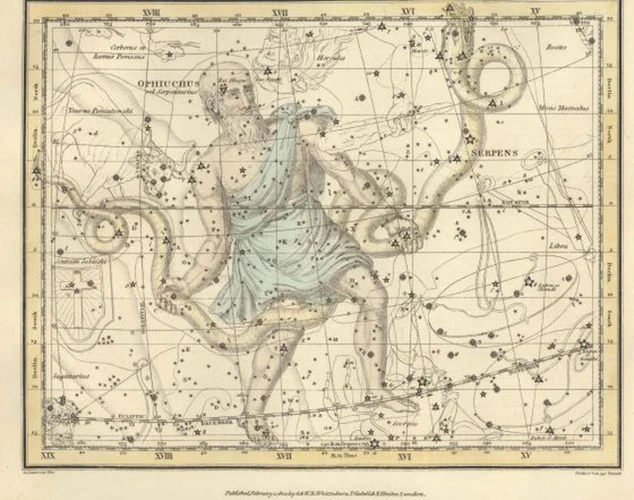
Greek mythology has left a significant imprint on the fields of science and medicine, influencing the way we understand and categorize various aspects of the natural world. Many scientific terms and concepts find their roots in Greek mythology, providing a fascinating connection between ancient myths and modern scientific knowledge.
One area where Greek mythology has had an impact is the classification of celestial bodies. The naming of asteroids, for example, often draws inspiration from Greek mythology. These small rocky objects that orbit the Sun are named after gods, goddesses, and mythological figures such as Apollo, Hermes, and Pandora. The study of asteroids and their classifications plays a crucial role in understanding the formation and evolution of our solar system.
Ancient Greek myths also influenced our understanding of the cosmos and the study of exoplanets. Exploring the vastness of the universe, scientists have discovered strange and unusual exoplanets with intriguing characteristics that often evoke the imagination and curiosity associated with Greek mythology. These discoveries challenge our previous notions of what constitutes a planet and expand our understanding of the possibilities within our universe.
Greek mythology has also influenced our exploration of the night sky and the identification of constellations. Many constellations bear names derived from Greek myths, such as Orion, Cassiopeia, and Perseus. These mythological connections not only add a sense of wonder and storytelling to our observations of the night sky but also provide a cultural link between ancient civilizations and our modern understanding of the cosmos.
In the field of medicine, Greek mythology has had an influence on the nomenclature of various diseases and medical conditions. For example, the term “Achilles tendonitis” refers to the inflammation of the Achilles tendon, which was named after the Greek hero Achilles. The use of mythological references in medical terminology not only provides a memorable way to identify and describe various conditions but also pays homage to the enduring impact of Greek mythology on our cultural and intellectual heritage.
Greek mythology has left an indelible mark on the fields of science and medicine. From celestial bodies to medical conditions, the influence of ancient Greek myths can be found in the terminology, classification, and exploration of these domains, bridging the gap between the ancient world and our modern scientific advancements.
The Impact of Greek Mythology on Astronomy and Astrology
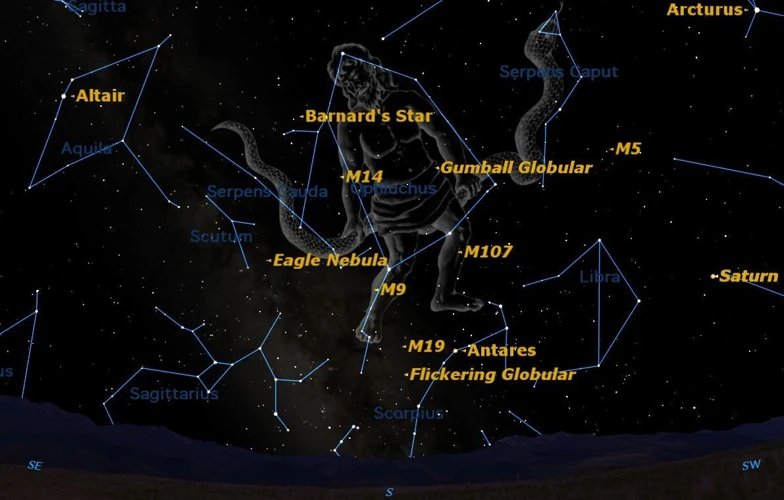
The influence of Greek mythology extends beyond literature, art, and popular culture and has even made its mark on the realms of astronomy and astrology. Many constellations and celestial bodies in the night sky bear the names of gods, goddesses, and mythical creatures from Greek mythology, adding a layer of storytelling and symbolism to the study of the stars.
One prominent example is the constellation Orion, named after the mighty hunter from Greek mythology. With its distinctive belt of three stars, Orion has long been a beloved constellation for stargazers. In the mythology, Orion was a skilled hunter who met a tragic end but was immortalized in the heavens as a constellation. Another well-known constellation is Cassiopeia, named after the queen of Ethiopia in Greek mythology, known for her vanity and role in the myth of Andromeda.
In addition to constellations, Greek mythology has influenced the naming of planets and moons in our solar system. For instance, the planets Venus and Mars are named after the Roman counterparts of the Greek goddess Aphrodite and the god Ares, respectively. The moon Io, one of Jupiter’s moons, takes its name from a mythological figure who was transformed into a cow by the god Zeus. These celestial names not only provide a sense of familiarity and recognition but also connect the mysteries of the cosmos to the ancient tales and beliefs of Greek mythology.
Greek mythology has left its imprint on the field of astrology. Astrologers often refer to the planetary gods and goddesses from Greek mythology when interpreting astrological signs and their supposed influence on human personality traits and destiny. The zodiac, which divides the sky into twelve equal segments, is rooted in ancient Greek mythology, with each sign representing a different constellation and having its own distinct characteristics and associations.
The impact of Greek mythology on astronomy and astrology showcases the enduring power of these ancient stories to shape our understanding of the celestial realm. By infusing the study of the stars with mythology, these disciplines add an element of storytelling and wonder, allowing individuals to connect with the cosmos in a deeper and more meaningful way.
(Note: For more information on exploring modern constellations and the wonders of the cosmos, check out our article on Exploring Modern Constellations.)
Conclusion
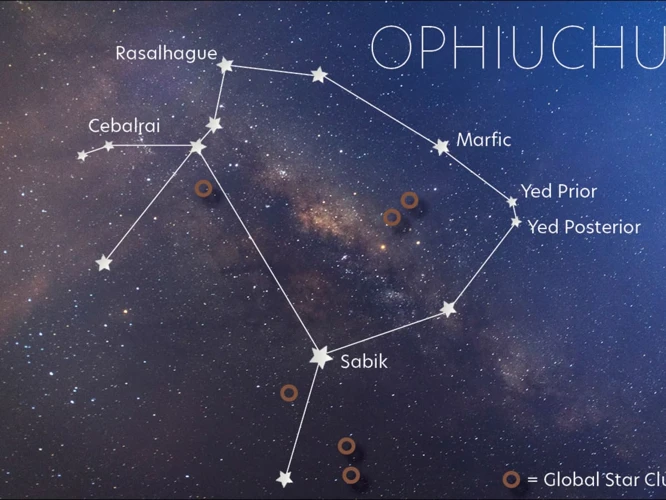
In conclusion, the influence of Greek mythology on modern culture is undeniable and far-reaching. The gods and goddesses of ancient Greece have become iconic figures in literature, film, art, and more, captivating audiences with their timeless stories of heroism, tragedy, and divine power.
The archetypal characters and themes of Greek mythology, such as heroic figures embarking on epic quests and tragic heroes plagued by their own flaws, continue to resonate with audiences today. These stories have become deeply ingrained in our collective consciousness, shaping the way we perceive and understand the world.
Moreover, the language and expressions derived from Greek mythology have become an integral part of everyday speech. Phrases like “Pandora’s box” and “Achilles’ heel” are used to convey concepts of curiosity and vulnerability, reflective of the enduring impact of these mythological tales on our language and culture.
Furthermore, modern interpretations and adaptations of Greek mythology have breathed new life into these ancient stories. From fantasy and role-playing games like “God of War” to comics and graphic novels like “Wonder Woman,” these mediums have allowed for the exploration of Greek mythology in new and exciting ways.
The influence of Greek mythology extends beyond the realms of entertainment. It has also made its mark in fields such as science, medicine, and astronomy. The names of planets, constellations, and even asteroids are derived from Greek mythology, showcasing the deep connection between these ancient stories and our exploration and understanding of the universe.
In essence, Greek mythology continues to be a powerful and enduring force in modern culture. Its impact can be seen in literature, film, art, language, and various other aspects of our daily lives. As we continue to explore and appreciate the rich tapestry of Greek mythology, we gain a deeper understanding of ourselves and the world around us.
Through its timeless tales of gods, goddesses, heroes, and tragedies, Greek mythology reminds us of the universal themes and experiences that connect humanity across time. It is a testament to the enduring power of mythology and its ability to inspire, entertain, and inform generation after generation.
To learn more about the impact of Greek mythology on science, be sure to check out our article on unusual exoplanets, which delves into the fascinating connections between mythology and astronomy.
Frequently Asked Questions

1. How did Greek mythology influence the development of literature?
Greek mythology provided a rich source of inspiration for countless literary works. Authors like Homer drew from mythological stories and characters to create epic poems like “The Iliad” and “The Odyssey,” which continue to be celebrated for their timeless themes of heroism, adventure, and the human experience.
2. How have Greek gods and goddesses been portrayed in film and television?
Greek gods and goddesses have made appearances in various films and TV shows, bringing their mythological personas to life. Whether in the form of epic battles in films like “Clash of the Titans” or as central characters in TV series such as “Xena: Warrior Princess,” these mythological figures continue to captivate audiences with their larger-than-life stories.
3. How has Greek mythology influenced the world of art and sculpture?
Greek mythology has been a major source of inspiration for artists and sculptors throughout history. From ancient Greek pottery to Renaissance paintings and sculptures, the gods and goddesses have been depicted in various artistic forms, showcasing their beauty, power, and enduring impact on artistic expression.
4. What is the significance of heroic figures and the hero’s journey in Greek mythology?
In Greek mythology, heroic figures and their journeys often symbolize the human quest for self-discovery, overcoming challenges, and achieving greatness. The hero’s journey archetype has been widely adopted in modern storytelling, serving as a template for the development of memorable characters and compelling narratives.
5. What is the concept of hubris and its connection to tragic heroes?
Hubris, a concept deeply ingrained in Greek mythology, refers to excessive pride and arrogance that often leads to the downfall of tragic heroes. These flawed characters, such as Oedipus and Achilles, serve as cautionary tales, showcasing the dangers of overestimating one’s abilities and defying the gods.
6. How does Greek mythology use symbolism to convey messages?
Greek mythology is rich in symbolism, with gods and goddesses often representing various aspects of human nature and the natural world. For example, Zeus symbolizes power and authority, while Aphrodite represents love and beauty. The use of symbolism adds depth and meaning to mythological narratives.
7. How is Greek mythology present in everyday language and expressions?
References to Greek mythology are pervasive in everyday language. Phrases like “Pandora’s box” or “Herculean effort” have become common expressions, drawing from the rich narratives of Greek mythology. These allusions add color and depth to our language, preserving the legacy of these ancient tales.
8. How does advertising and marketing utilize mythological allusions?
Advertisers and marketers often leverage the familiarity and symbolism associated with Greek mythology to create impactful campaigns. Whether it’s using the image of Hermes, the messenger of the gods, to depict fast and efficient delivery, or referencing the wisdom of Athena to promote a product’s intelligence, mythological allusions help tap into the collective consciousness.
9. How has Greek mythology influenced the world of fantasy and role-playing games?
Greek mythology has provided a rich backdrop for the world of fantasy and role-playing games. Games like “God of War” and “Age of Mythology” incorporate elements of Greek mythology, allowing players to immerse themselves in the divine realm, interact with legendary creatures, and embark on epic quests.
10. How does Greek mythology inspire music and theater?
Greek mythology continues to inspire composers, songwriters, and playwrights across various music genres and theatrical performances. Operas like “Orpheus and Eurydice” and musicals like “Hadestown” draw from mythological stories, exploring themes of love, loss, and the human condition through the lens of ancient Greek tales.
References
Frequently Asked Questions

Why is Greek mythology still relevant today?
Greek mythology continues to be relevant today because it explores fundamental human themes such as love, power, and the consequences of our actions. Its timeless stories and larger-than-life characters resonate with people across cultures and generations.
What are some examples of Greek mythology in literature?
Some examples of Greek mythology in literature include Homer’s epic poems “The Iliad” and “The Odyssey,” which tell the stories of the Trojan War and the adventures of Odysseus, respectively. Another example is the tragedy “Oedipus Rex” by Sophocles.
How has Greek mythology influenced film and television?
Greek mythology has influenced film and television through adaptations of ancient Greek myths, as well as by inspiring new stories with mythological elements. Popular examples include movies like “Clash of the Titans” and TV shows like “Hercules: The Legendary Journeys.”
What role does Greek mythology play in art and sculpture?
Greek mythology has long been a major source of inspiration for artists and sculptors. Ancient Greek sculptures often depicted gods, goddesses, and mythological heroes. Even today, artists draw on these myths for inspiration in their work, creating modern interpretations of mythical figures.
Why are archetypal characters and themes important in Greek mythology?
Archetypal characters and themes in Greek mythology represent universal patterns of human behavior and experiences. They allow us to explore and understand complex emotions, motivations, and conflicts that are still relevant today, making Greek mythology a rich source of storytelling and expression.
What are some examples of heroic figures and the Hero’s Journey in Greek mythology?
Some examples of heroic figures and the Hero’s Journey in Greek mythology include Perseus, who slayed Medusa, and Heracles (Hercules), who completed his twelve labors. These stories follow the archetype of a hero’s quest, where the hero faces challenges, gains new knowledge or abilities, and returns transformed.
What is the concept of hubris in Greek mythology?
Hubris, a concept found in Greek mythology, refers to excessive pride or arrogance that often leads to the downfall of a character. It is a warning against the dangers of overconfidence and disrespecting the gods, as evident in tragic heroes like Oedipus and Icarus.
How does Greek mythology use symbolism?
Greek mythology uses symbolism to convey deeper meanings and universal truths. For example, the owl symbolizes wisdom, the olive tree represents peace, and the golden apple symbolizes discord. These symbols are often used to enhance the storytelling and provide insights into the human condition.
What are some mythological references in everyday language?
Examples of mythological references in everyday language include idioms such as “Pandora’s box” referring to something that unleashes unforeseen consequences, and “Achilles’ heel” meaning a vulnerable or weak point. These references add depth and richness to our everyday communication.
How has Greek mythology influenced science and medicine?
Greek mythology has influenced science and medicine through the naming of celestial bodies, diseases, and medical conditions. For example, the term “herculean” is used to describe a strong and muscular physique, and the constellation Orion is named after a mythological hunter.
References
- Greek mythology in popular culture
- Why Greek Mythology is Still Relevant
- The Influence of Greek Mythology on Modern Society

